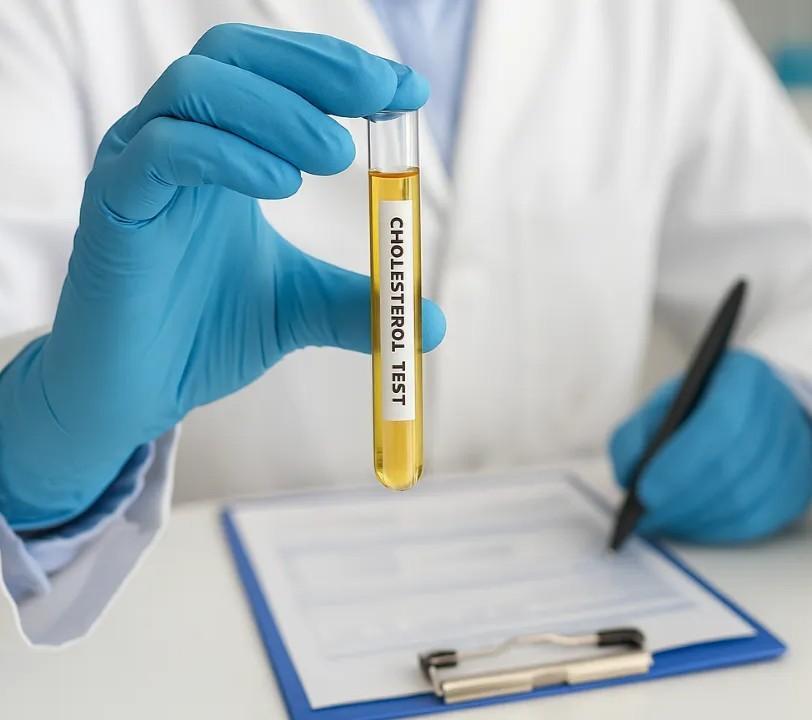
Eco-friendly Cholesterol Sensor Developed by Indian Scientists
In a breakthrough innovation, a research team at the Institute of Advanced Study in Science and Technology (IASST) in Guwahati, India, has developed a novel optical and electrical sensing platform for detecting cholesterol. This eco-friendly point-of-care system uses phosphorene quantum dots integrated with silk fibre to detect cholesterol at trace levels in real-world biological samples.
High cholesterol levels are a major risk factor for heart disease and stroke, making timely detection and monitoring crucial for preventive healthcare. Traditional methods for cholesterol detection involve laboratory-based tests, which are time-consuming, expensive, and often require specialized equipment. The new sensor developed by the Indian research team offers a game-changing solution, providing a rapid, accurate, and eco-friendly way to detect cholesterol levels in patients.
The innovative sensor uses phosphorene quantum dots, a type of nanomaterial, which are conjugated with silk fibre to create a sensing platform. This unique combination allows for the detection of cholesterol in biological samples with high sensitivity and selectivity. The sensor’s optical properties enable it to detect the presence of cholesterol molecules, while its electrical properties allow for the quantification of cholesterol levels.
The IASST research team, led by Dr. Jayeeta Chakraborty, has successfully demonstrated the efficacy of the sensor by testing it with real-world biological samples. The sensor was able to detect cholesterol levels as low as 0.1 milligrams per decilitre (mg/dL), which is significantly lower than the current clinical detection limit of around 1.5 mg/dL.
The eco-friendliness of the sensor is another significant advantage. Unlike traditional sensors that require complex instrumentation and reagents, the phosphorene-silk fibre sensor is simple, cost-effective, and environmentally friendly. The sensor’s production process also involves minimal waste generation and energy consumption, making it an attractive option for healthcare providers and researchers.
The development of this eco-friendly cholesterol sensor has far-reaching implications for healthcare, particularly in resource-constrained settings where access to laboratory-based testing is limited. The sensor’s portability and ease of use make it an ideal solution for point-of-care testing, enabling healthcare professionals to quickly and accurately diagnose high cholesterol levels in patients.
The Indian research team’s innovation has also sparked interest in the potential applications of phosphorene quantum dots in various biomedical sensing platforms. The unique properties of these nanomaterials make them an attractive candidate for the development of sensors for detecting other biomarkers and diseases.
The news of the eco-friendly cholesterol sensor has sent shockwaves in the scientific community, with experts hailing it as a significant breakthrough in the field of biomedical sensing. The development of this sensor is a testament to the innovative spirit and dedication of Indian scientists, who are making significant contributions to the advancement of healthcare technology.






